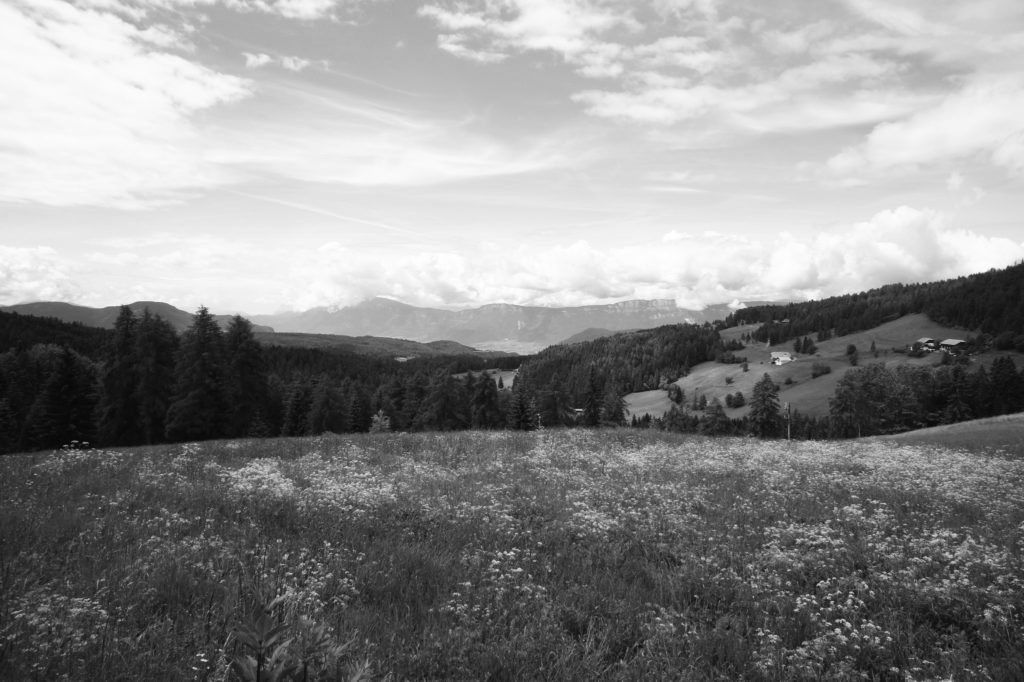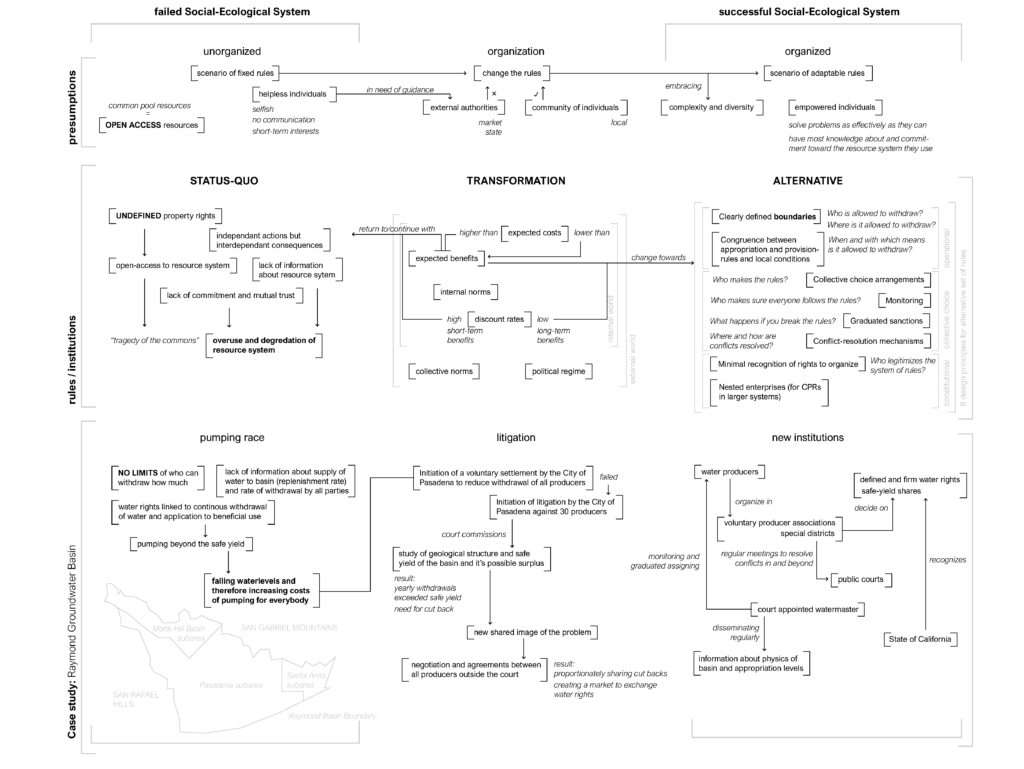
The continuos overuse and destruction of Natural Resources has been a problem during the time that Elinor Ostrom published her book Governing the Commons and continues to threaten ecosystems today. Elinor Ostrom showed that this scenario is not inherent to all natural or „common pool resources“ (CPRs) as portrayed in „the tragedy of the commons“ by Garret Hardin in the 60s, but exists due to the specific exterior and interior factors in some settings.

Elinor Ostrom believed in the power of individuals and not external authorities – the market or the state – to change the factors or rules of these settings themselves and thus overcome the „tragedy“. This first main contribution of hers to the field is shown in the first row. In order to ensure a productive and resilient long-term relationship between a community and its environment she developed a set of eight „design principles“. How the transition from a set of status quo rules towards these „design principles“ – a set of alternative rules – can be achieved by a community was her second main contribution and is shown in the second row.
Her third major contribution was her method of observing and documenting real life scenarios. She advocated to tightly combine the development of new theories with the empirical analysis of case studies. A successful transition from a set of status quo rules which lead to exploitation and increasing appropriation costs towards an alternative set of rules through an iterative process of litigation and forging of agreements among individuals of acommunity can be observed in the case of the Raymond Groundwater Basin shown in the third row.
A very contemporary example of this transformation of rule systems is the recent UN high seas treaty which is widely viewed as a big success in protecting this common pool resource, threatened by exploitation and biodiversity loss due to its open access character and the lack of rules and monitoring. The treaty could make it easier to create an alternative set of rules and put up monitoring institutions. The remoteness of the ecosystem and the economic/political power of parties interested in benefiting from this CPR though endangers its succesfull protection.

